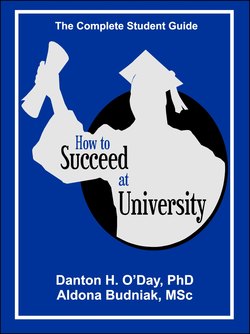Читать книгу How to Succeed At University--International Edition - Danton O'Day - Страница 34
На сайте Литреса книга снята с продажи.
Chapter 2 Summary
Оглавление1.Take time to look over available universities and select one that is recognized for its specialization in your area of interest.
2.The most useful sources of information on universities are university calendars, websites, brochures and university student recruitment nights held by some high schools.
3.The university calendar is your academic bible and complete information guide—use it!
4.Select your subjects wisely to produce a balanced programme that provides the proper credits at the proper time for your degree requirements. Extension courses can be used to make up deficiencies.
5.Admission to university depends mainly on your grades, whether in high school or on standardized tests; however, other criteria may also be evaluated.
6.Lectures are the most common form of communicating information at university, but they can vary greatly in format.
7.The university has facilities where you can find out everything you need to know about your academic programme. The services and information provided include counselling, details about courses, admission requirements and registration procedures, job possibilities and job placement opportunities, scholarships and awards and much, much more.
8.Learn how to use the library. It will be invaluable to you in your quest for good grades.
9.The university is a complex institution. It does more than just teach. Learn something about its organization—it may come in handy.
